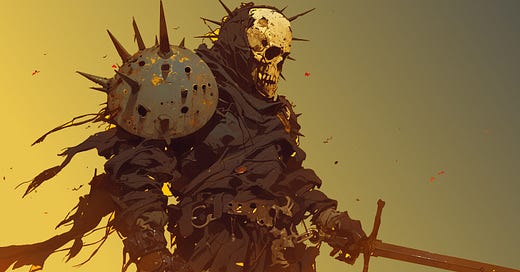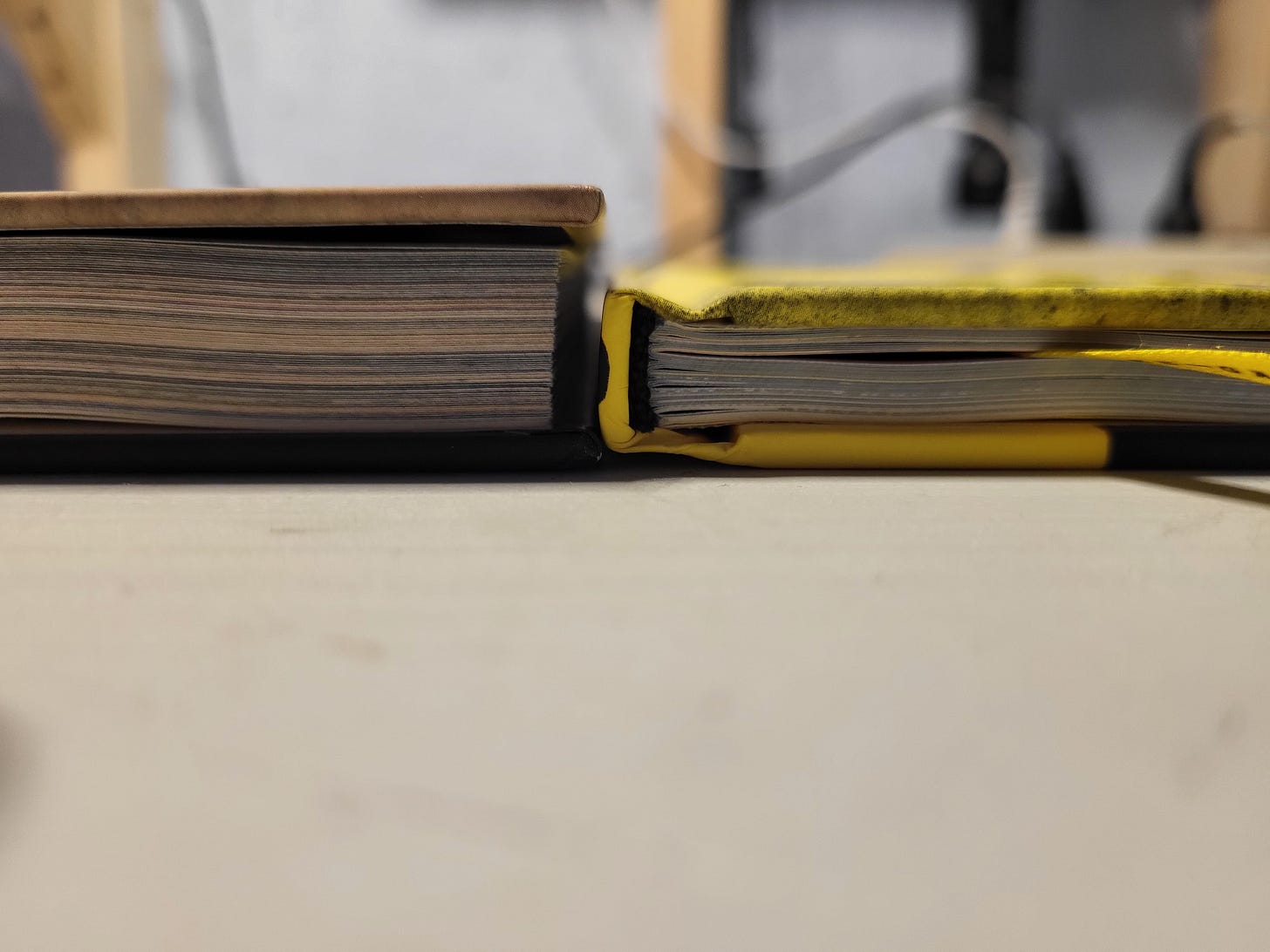Welcome to the Glyph and Grok - A usually-weekly blog-letter exploring topics in the tabletop gaming arena. We explore design, execution, and culture relating to anything played on a tabletop.
Introduction
Mork Borg is a very popular tabletop roleplaying game almost always included on lists of "TTRPGS YOU MUST PLAY THAT ARE NOT D&D". I have not had the good fortune to play in a live game of it yet, but I've read the copy I just bought and I can see why people like it. By the main rule book there's enough to fire the imagination on all cylinders. Mad Max vibes and heavy metal adornments give this game major flavor.
Pirate Borg is a stand alone game made with compatibility for Mork Borg, basically uses the same system with more things bolted on - and boy does it have a slew of things bolted on. I've not played a game of this yet either, but the developer, Limithron is hosting a game jam for May 2024 and I plan to submit to it. So I am taking this opportunity to give my thoughts on both of these games.
Visual Design
Mork Borg is a trip. It's as much an artistic statement as it a TTRPG Rulebook. There are places it even sacrifices information transmissibility for the sake of the aesthetic. I can appreciate a badass visual, but am also utilitarian regarding game master tools. If I had not been told by people I trust how good this game was, I'd likely pick it up off the shelf, flip through it, go "That is cool, but I don't know that it's for me" and then moved on. I will say I'm glad I own a copy though, It is at the very least a very cool artifact to own.
There is a now distinctly Mork Borg style of disjointed images and intentionally askew multi-font text that invokes a kind of desperate insanity, meant to steep the reader in the strange prophetic and apocalyptic feeling. The text has it's own verbose and elaborate style that encompasses most of the front of the book.
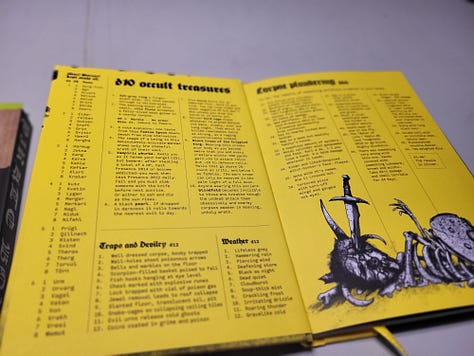
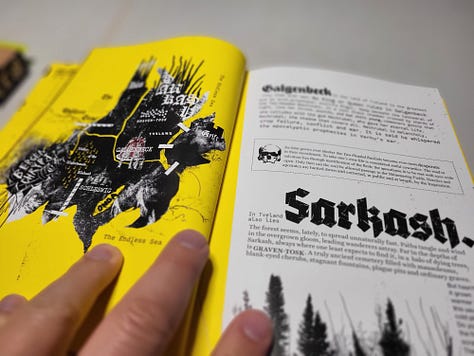
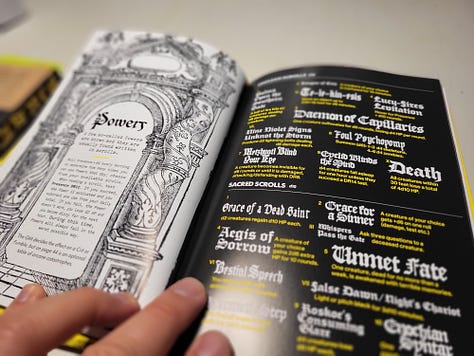
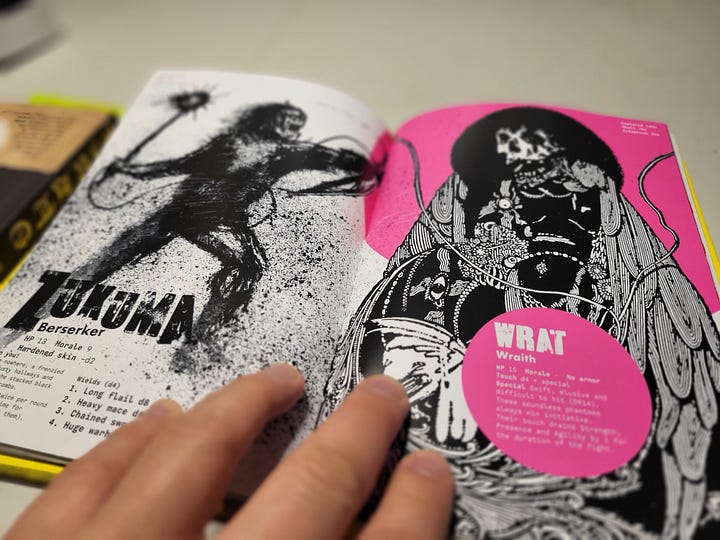
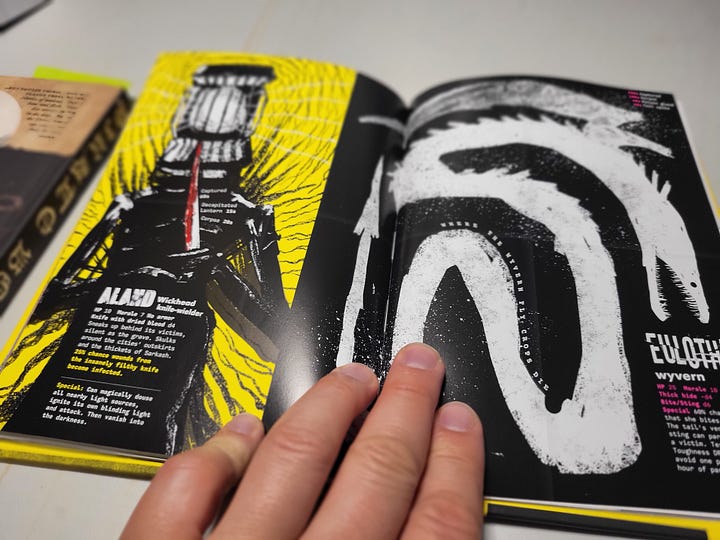
Where there is a possible choice between conceptual story vibes and hard lines, like most "rules-light" games, Mork Borg chooses conceptual story vibes. Sometimes this runs up against usability of certain tables or rules, but that's ok, it's cool.
Pirate Borg is also a trip, but I think it has a couple sliders adjusted with conceptual story vibes reduced a little bit, and utility tuned up just a bit. Pirate Borg still has very similar disjointed visuals and re-mixed text that invoke similar schizophrenic vibes but with a mixture of pirate skeletons and an anchor in an alternate reality real-world Caribbean during the height of the age of the pirate. With Mork Borg there are a couple spots where I thought "this is nigh unreadable", with Pirate Borg, I didn't come across anything that pushed that hard and buried the usefulness of the pages.
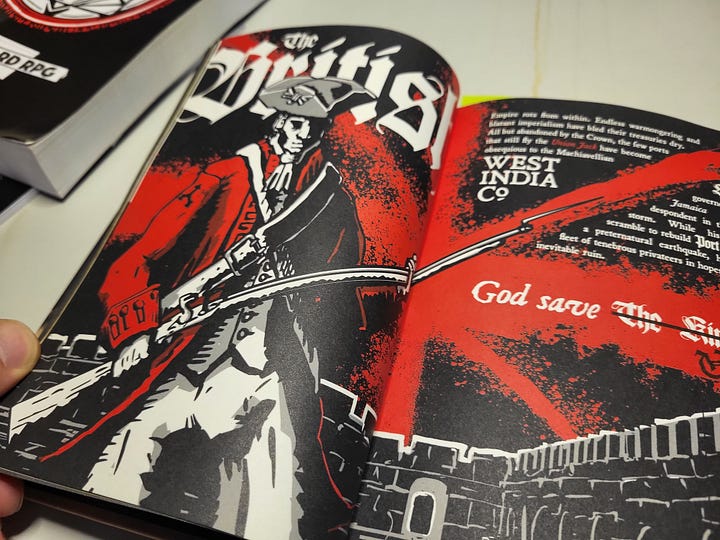
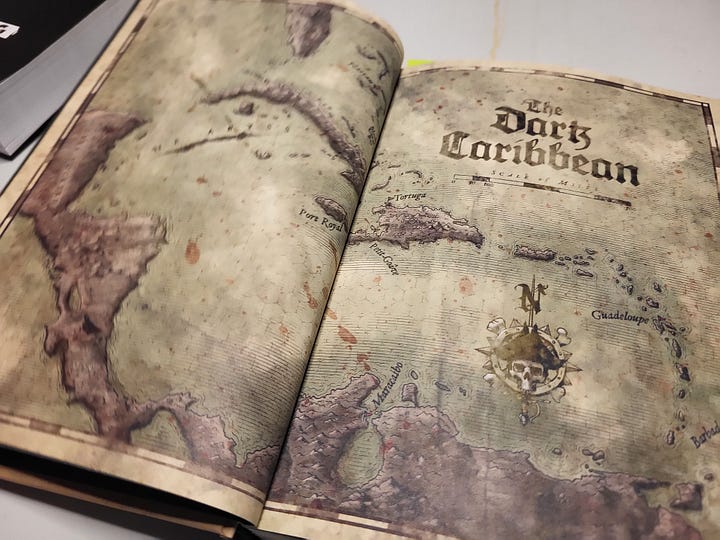
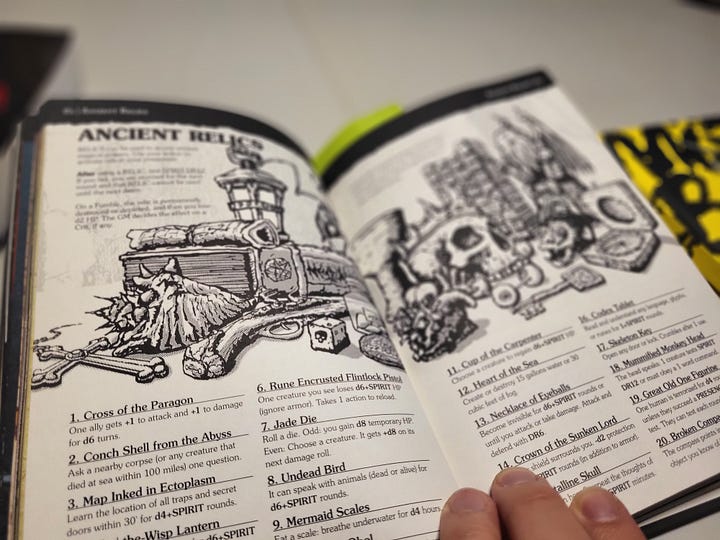
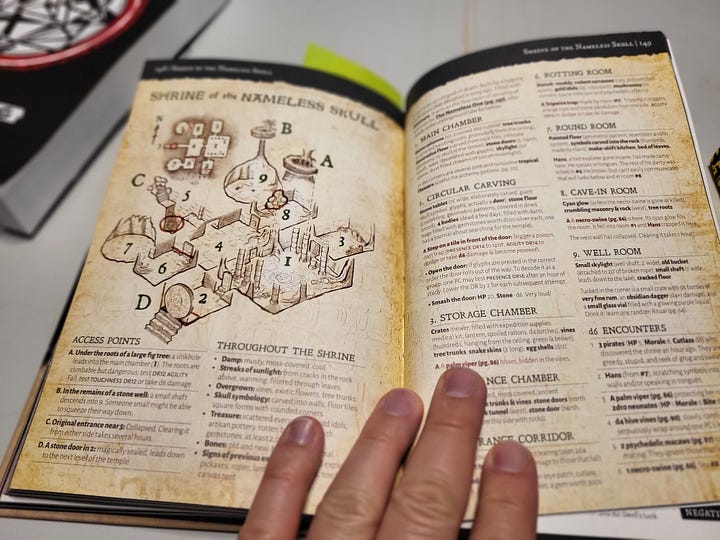
What I can say about both of these books is they have style and there is a commitment to artistic composition that I find interesting and fun.
One more take-away from Pirate Borg is the sheer amount of content in the book. It's almost 2x taller than Mork Borg when they're on the table next to each other. (Read: this is a positive for Pirate Borg - but not a take away from Mork Borg - there's tons of content out there beyond the main book - some even for free.)
Rules and Mechanics
The BORG games are a rule-light OSR style game, meaning there's a resolution system, some imaginative roll tables, a map with some context, and a mandate for all players at the table to carry weight in development of the story AND for PCs to look for answers outside their character sheets (but with at least 1 cool class-based ability)
The character creation is quick and the PC sheets help make that streamlined. The intention is to make it easy to get off the ground and get imagining, which I appreciate versus something like 5E which has a massive overhead to getting started by comparison. In both BORG games being reviewed here, you roll 3d6 for your stats, roll a class (or choose), roll up some starting items, and get going.
The Resolution system at it's core is basic. There's a Difficulty Rating (DR) that has a solid basis for a starting value and what can adjust it. Despite being simple, I much prefer solid straight forward (and low math value) approaches to resolution that don't require stacking up a pile of modifiers and convolute situation context to make the gameplay obfuscate the fact that you're using random math rocks to find an answer to a narrative question.
The weird bit for me is that I love rolling dice as a game master / referee / what-have-you. Again, I haven't had the opportunity to play either game live yet (which hope to fix soon), and I get the idea is to free up the GM to focus on the story as much as possible, but I prefer to roll dice for what's going on with my creatures - even if it can be tedious. But Combat is really the only place where the GM Doesn't roll for the broader world. The PCs roll to defend against attacks (D20 + agility mod), as well as their own attacks, so the GM is only rolling for random things happening or other story related things.
Mork Borg instills playing a hopeless metal head song inspiring character at the end of the world during days of Armageddon. Pirate Borg invokes the glory days of pirates but twisted to incorporate undead and strange end of days happenings around the Dark Caribbean. Both games have interesting and deadly small worlds that beg to explored through thoughtful play and both provide tables and tables of stuff to give you flavor and example of what these settings entail.
I will say I found the sheer amount of content in the Pirate Borg book to be astounding. There is a full blown naval combat system and ship’s crew and loadout system. Many character classes and systems that can be bolted on or ignored when a GM wants to play something streamlined, but there are so many examples in the base book that can point a GM in the direction of the game’s design.
Final Thoughts
Both Mork Borg and Pirate Borg are great books. My personal proclivities lean me more towards wanting to try to play Pirate Borg more than Mork Borg. That may just be the settings, I love an undead pirate setting with a system to let my players roll around in a ship, but I also think the Pirate Borg book pulls back just enough from the crazy visual aesthetic to make every page chock full of easily digestible and easily applicable information for your game. While Mork Borg certainly has many things to offer, Groking all of them takes more time at the table.
I’d play either of these games any day though, who wants to run one?
Affiliate Links
Purchase Mork Borg here
Purchase Pirate Borg here:
What I Am Up To
TTRPG Production: Pirate Borg Game Jam Brainstorming
Audiobook: Iron Gold
Useful Things For Your Games
Spotify Playlist Add - Role: Forest and Fae

